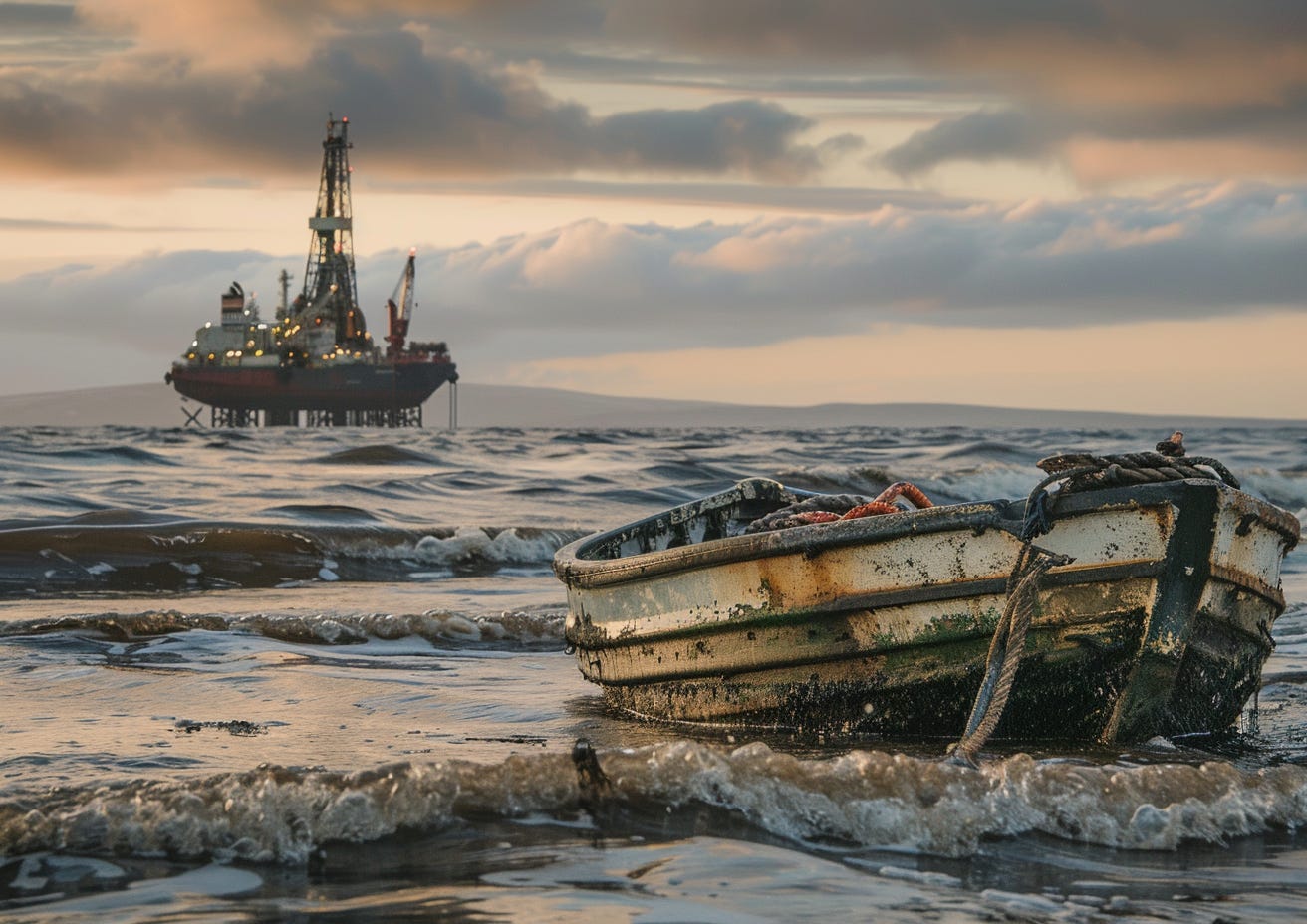The Impact of Labour's Windfall Tax on Oil and Gas Investments
Manage episode 429411260 series 3586928
I have had a number of questions from readers lately, which I wanted to address today. We’ll be looking first at oil and gas, then uranium and finally what has been going on with bitcoin.
This first reader question comes from my comment last week that the new Labour Government’s plans to launch Great British Energy to “harness Britain’s sun, wind, and wave energy” with a windfall tax on oil and gas giants will make British oil and gas companies uninvestable. What, then, to do with our oil and gas stocks?
Let me quickly try to explain, as best I can, what the windfall tax will entail. First, Labour says: “We will not issue new licences to explore new fields.” So that’s North Sea oil and gas exploration up the swanny and all the jobs that go with it.
It also says: “We will not grant new coal licences and will ban fracking for good.” So that opportunity is gone too. Instead, we import fossil fuels (itself environmentally damaging) from places which, for the most part, will produce them in a more environmentally harmful way than we would.
Question: Which is more environmentally harmful? Producing oil and gas yourself, in such a way that you have some oversight and control of production methods, or having it produced in other jurisdictions, where you have no control, and then transporting it?
Even Labour recognises that we still need fossil fuels as we “make the transition” to renewable energy, so why not do it ourselves?
Never mind the fact that so much clean energy is neither clean nor green. We like Labour’s positive stance on nuclear and, especially, small modular reactors though.
As for the tax itself, it is an extension of the already existing tax, imposed by Rishi Sunak in May 2022, and already extended by Jeremy Hunt till 2029. Labour is also going to increase the levy by 3% and remove certain allowances. It is more a case of continuing with idiocy than embracing new idiocy, if that makes sense.
So to the impact on portfolios:
In the Dolce Far’ Niente portfolio, the main holding is the iShares Oil and Gas ETF (SPOG.L), which is made up of North American companies and so is unaffected. If anything, it will benefit as oil and gas investment leaves the UK.
Dr. John’s oil picks include the broadly-invested ETF Energy Select Sector SPDR Fund (LSE: XLES), which is also fairly immune as it is mostly invested in US Dollar-denominated stocks (Exxon, Chevron). The Guinness Global Energy (ISIN 0P0000SV1G.L), another favourite of his, has a more balanced global portfolio than XLES, so again is not too badly impacted.
Shell (LSE: SHEL) and BP (LSE: BP) are core investments for most UK investors, but UK activity only accounts for maybe 5% of their business, so they will not be too badly impacted. Judging by their recent share price performance, the detrimental impact of the windfall tax is mostly priced in. If the government gets too heavy with them, they could always de-list, which will give them some bargaining power.
It is the small caps where the pain will be, and these have long since been uninvestable and not something we have dabbled in. For the North American smallcaps, Dr John is your man.
Charlie Morris is one of my closest mates and he writes what I think is one of the best investment newsletters out there, in fact a suite of them. I urge you to sign up for a free trial.
Uranium
When it comes to investing in uranium, we have long advocated owning the metal over the miners. While there are enormous gains to be had in the miners if you call them correctly, the actual producers are overvalued, and the exploration and development plays will not see any production for decades, making them enormous drains of capital.
Yellowcake (YCA.L) has been our preferred vehicle and we took half our money off the table earlier in the year above 700p. We also reduced the allocation in the Dolce Far Niente portfolio from 5% to 2.5%.
A number of readers have asked when I am planning to add back.
18 episodes






